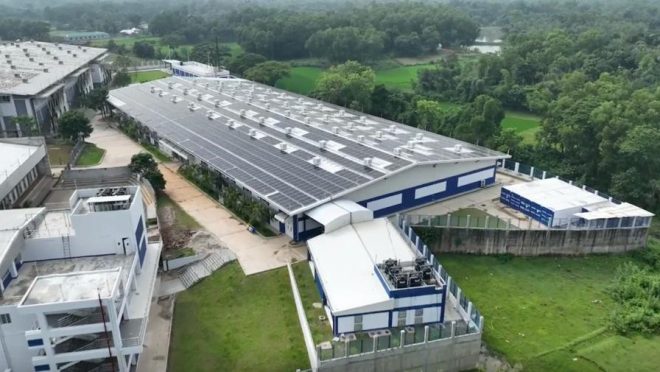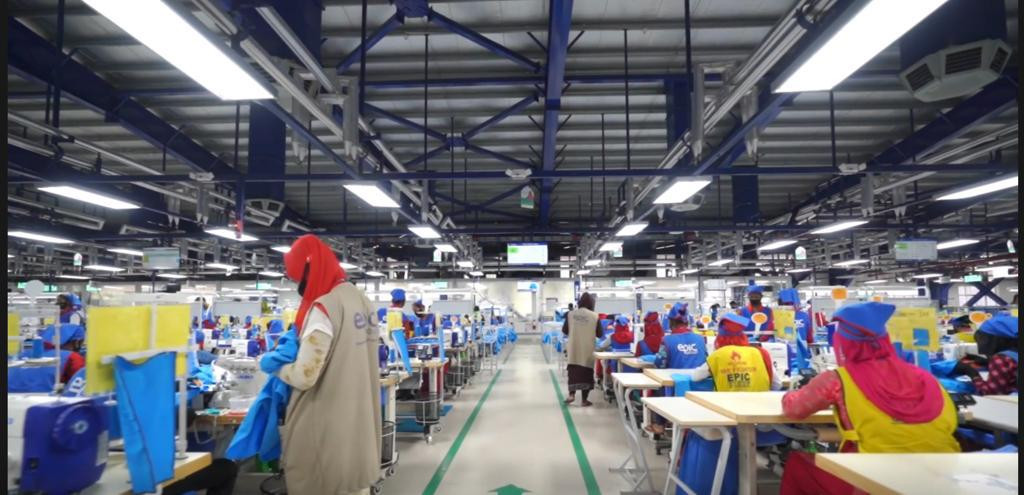How Bangladesh is building a sustainable future for textiles
How Bangladesh is building a sustainable future for textiles

Bangladesh’s textile industry isn’t just adopting sustainable practices; it’s spearheading a revolution across the entire spectrum of cloth products.
In response to global environmental challenges posed by cloth products, Bangladesh stands out as a leader, introducing innovative solutions that shape the future of the sector.
Bangladesh’s sustainability commitment involves embracing eco-friendly materials like recycled cotton, recycled polyester from plastic, sustainable viscose, and other man-made fibres.
This shift reduces the demand for new resources and effectively addresses textile waste. The industry is actively integrating sustainable colourings and chemicals, minimising its ecological footprint for a cleaner manufacturing cycle.
Water, a precious resource, is conserved through targeted efforts in the textile sector. Bangladesh optimises water usage and incorporates water-saving technologies, making significant strides in responsible water management. This commitment positions Bangladesh as a leader in sustainable water practices within the textile industry.
Working towards a low-carbon future., Bangladesh has made substantial advancements in green textile practices.
Besides these accomplishments, Bangladesh has become a global leader in certified green manufacturing, proudly showcasing 200 LEED-certified green manufactories.
This sets an unparalleled standard for sustainable textile production worldwide. Recognition from the US Green Building Council (USGBC) indicates strict adherence to environmental and energy efficiency standards, further solidifying Bangladesh’s pioneer status in eco-conscious manufacturing. Bangladeshi garment factory.
SM Sourcing Ltd has secured the top spot in the global Leadership in Energy and Environmental Design (LEED) Green Factory ranking with an impressive score of 106 out of 110.
Previously, Green Textiles Ltd Unit 4, another Bangladeshi factory, held the position with 104 points.
Bangladesh has made significant progress, with 54 of the world’s top 100 factories now located in the country, including 9 of the top 10 and 18 of the top 20.
Currently, Bangladesh has 187 LEED-certified green factories. Within this category, 63 garment factories hold platinum ratings, 110 have gold ratings, and 10 are silver-rated.

The installation of solar panels on the rooftops of ready-made garments (RMG), textiles, and other industries in Bangladesh has the potential to generate around 5,000 megawatts (MW) of electricity.
This underscores the nation’s commitment to sustainable energy practices. Beyond traditional fibres, Bangladesh’s textile industry is actively exploring sustainable alternatives like bamboo and Tencel, demonstrating a dedication to innovation and adaptability in the pursuit of sustainable textile practices.
This material diversification ensures the availability of eco-friendly options without compromising on quality. Effluent Treatment Plants (ETP) are also mostly used to treat industrial wastewater to make it reusable water or to safe discharge into the environment.
The industry is strongly committed to sustainability, extending beyond manufacturing. The focus extends to the packaging stage, emphasising the use of eco-friendly and biodegradable options. This approach ensures sustainability practices seamlessly integrate into every part of the supply chain, including the end-of-life phase of products. This strategy highlights Bangladesh’s dedication to a greener and more sustainable future, setting a standard for global textile practices.
Despite Bangladesh’s commendable strides towards sustainability in its textile industry, there are inherent challenges that persist. One notable drawback is the environmental impact on water resources. Textile industries are known to be heavy consumers of fresh water, often leading to the depletion of local water sources. Moreover, the inadequate functioning of Effluent Treatment Plants (ETPs) in major industrial hubs poses a significant concern. These ETPs, designed to treat industrial wastewater, frequently fall short in effectively purifying pollutants before discharge. Consequently, untreated effluents from textile processes contribute to the pollution of rivers, further exacerbating environmental degradation.
While Bangladesh is making remarkable progress in sustainable practices, addressing these challenges remains crucial to achieving a truly eco-conscious textile industry. Balancing economic growth with environmental responsibility is an ongoing endeavour that demands continued innovation and improvements in wastewater treatment processes to ensure a more comprehensive and sustainable future for the country’s textile sector.
In summary, Bangladesh’s textile industry leads in sustainability, emphasising recycled fibres & polyester, eco-friendly materials, and the use of ETP and man-made alternatives. With 200 LEED- certified factories, the nation is committed to eco-conscious practices. Bangladesh, home to 54 of the world’s top factories, emphasises less water consumption and explores solar energy potential, setting a global standard for a brighter, sustainable future.


